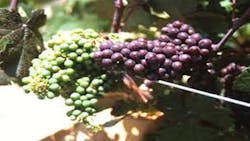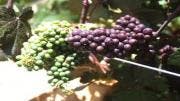Pilot program will import grapes from Peru to Florida
A pilot program that aims to import grapes from Peru into southern Florida by sea is in full operation, with 150 containers of this season’s fruit expected to arrive soon at the Port of Miami in Florida.
“It’s a relatively small number, but it’s better than zero, which is where we were a year ago,” said Bill Johnson, director of the Port of Miami. “We’re obviously hopeful that the pilot program will be authorized and that it will become a standard procedure. At this point, we are confident that we will pass the test.”
According to Johnson, his goal was to increase this number to the thousands in the coming years, in order to make the port an “important player in the movement of fresh fruits and vegetables.”
The new program also includes Peruvian blueberries among the first shipments set to arrive in January 2014. An estimated 100 containers of the fruit will be sent to Miami through this program. The protocol also provides for transporting Uruguayan blueberries and citrus fruit, with the Port Everglades designated as an alternative receptor.
Johnson said the protocol was a tribute to the work done by the partnership of public and private sectors to promote the cause of bringing perishable items directly to Florida and serve that state and the southeastern United States.
“We’ve been diligently working over the last three or four years to comply with the state’s standards and Washington’s official regulations to develop this initial pilot program, which is currently being developed,” he said.
Three shipping companies—Seaport Marine, Maersk, and APL—are working at the Port of Miami as part of the initiative, according to Johnson. Their journey from the Peruvian ports of Callao and Paita, depending on the shipping company, took about 20 days.
“They start cold treatment one or two days before leaving and complete it in Panama, where they stop for a week,” said Johnson. “When they are sure they have finished the cold treatment, they send the information to the USDA (US Department of Agriculture), and then ship the fruit to Miami. This is done because Florida allows imports of Peruvian grapes that have been treated in cold, but this cold treatment must be completed before entering Florida.”

